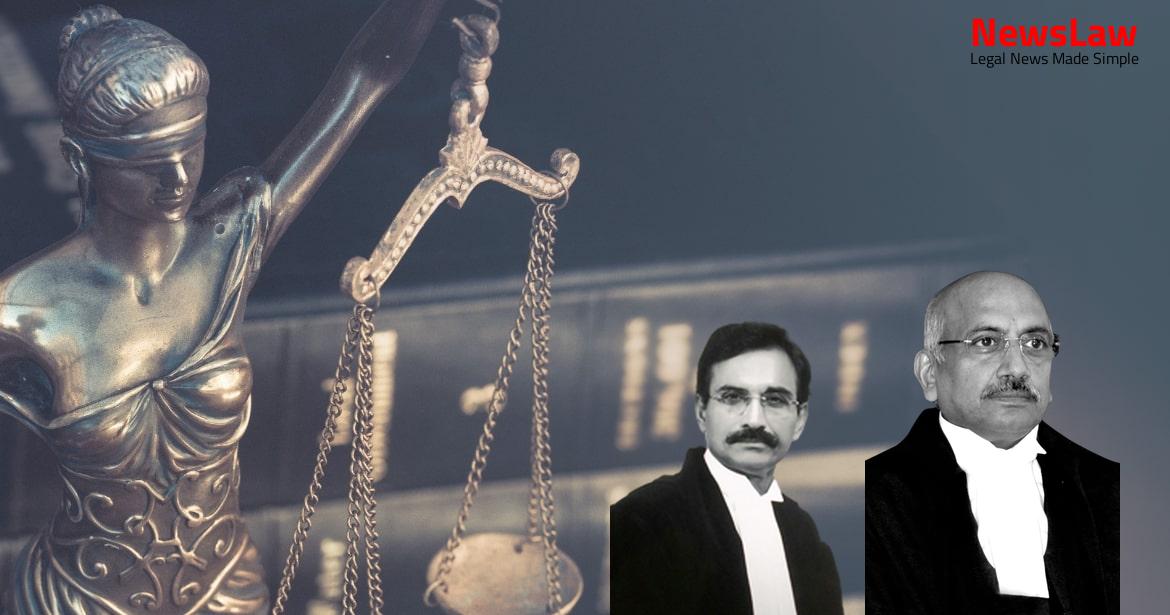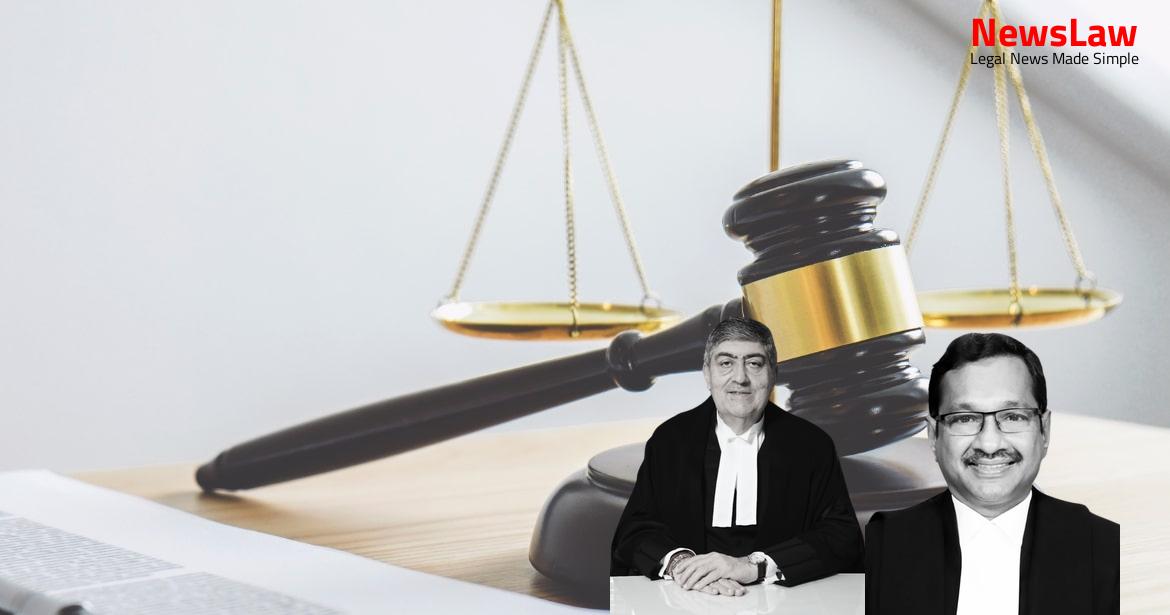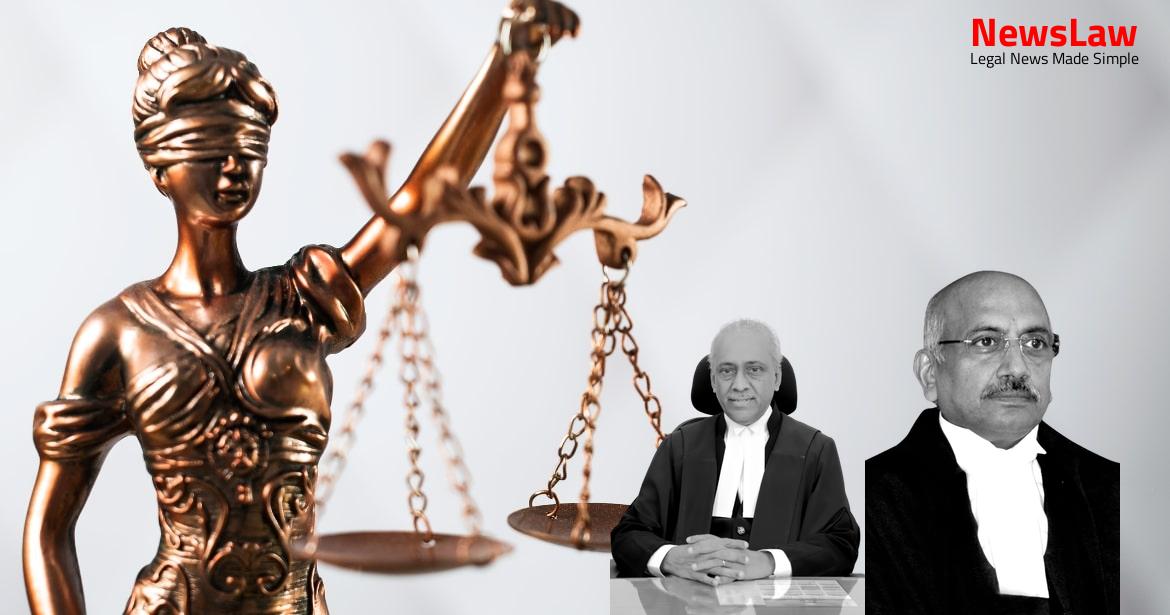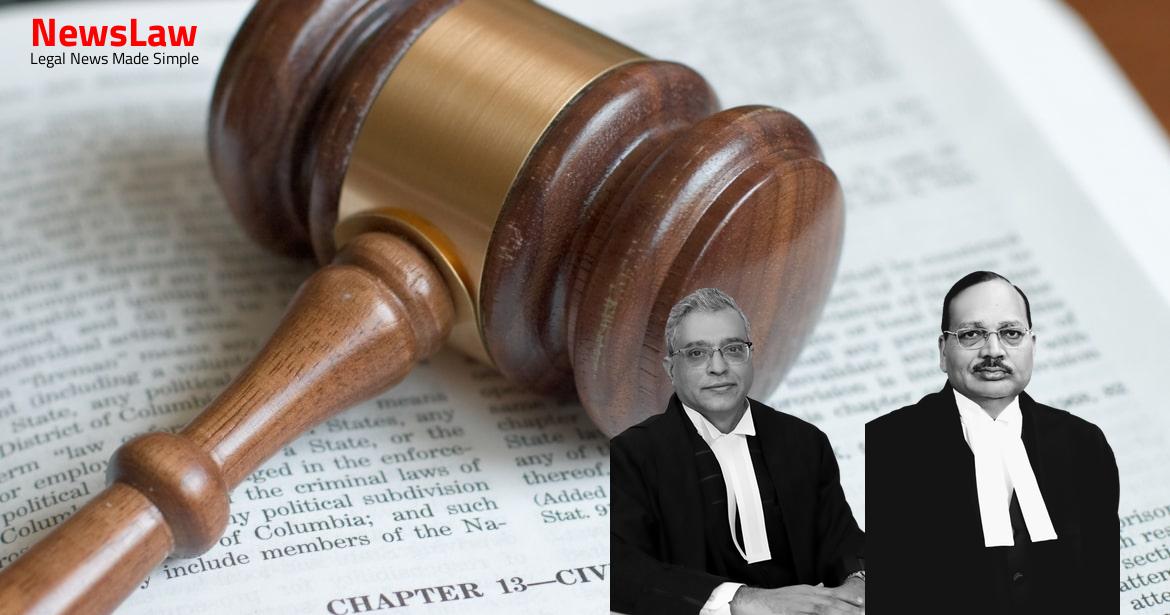In a significant legal case, the petitioners have challenged the State Government’s decision on reservations in promotions for Scheduled Castes and Scheduled Tribes. The obligation to provide reservations is being debated, with arguments from both sides regarding the need for quantifiable data on representation. Stay tuned for insights on this crucial matter.
Facts
- The Facets of Article 16(4) constitute a facet of equality under Article 14
- Reservation in promotions is not a fundamental right under the Constitution
- States have the discretion to provide reservations in promotions
- The decision in Nagaraj case does not prohibit the State from providing reservations in promotions
- States should collect quantifiable data showing backwardness of Scheduled Castes and Scheduled Tribes
- Reservation in promotion should not breach the 50% ceiling limit unless there are extraordinary circumstances
- The impugned proceedings dated 05.09.2012 are upheld
- High Court struck down the proceeding dated 05.09.2012 as contrary to the law declared by the Supreme Court in key cases.
- Uttar Pradesh Public Services (SC, ST, OBC Reservation) Act, 1994 was made applicable to Uttarakhand with modifications in reservation percentages.
- A Division Bench of the Allahabad High Court upheld the validity of Rule 8-A of the Seniority Rules but another Bench held it as not a binding precedent.
- The High Court of Uttarakhand declared Section 3(7) of the 1994 Act as unconstitutional and directed the State Government to collect data on inadequacy of representation before providing reservation in promotions.
- The State Government was given four months to make a decision on providing reservation based on the collected data.
- The State Government is not obligated to provide reservation in promotions as per Article 16(4-A) of the Constitution, but it can do so after collecting data on representation inadequacy.
- Various Civil Appeals have been filed challenging the High Court’s judgments and directions related to reservation in promotions.
Also Read: State of Karnataka v. [Respondent]
Issue
- The central point in consideration is whether the State Government is obligated to make reservations in public posts.
- The decision of the State Government to not provide reservations must be based on quantifiable data regarding adequacy of representation of Scheduled Castes and Scheduled Tribes.
- Article 16(4) and 16(4-A) do not grant a fundamental right to demand reservations in promotions.
Also Read: Legal Analysis of Entrance Exam Regulations in AYUSH Courses
Arguments
- Arguments presented by Mr. Kapil Sibal, Mr. Dushyant Dave, Mr. Colin Gonsalves, and Dr. K. S. Chauhan on behalf of reserved category employees.
- State’s obligation to collect quantifiable data on the representation of Scheduled Castes and Scheduled Tribes in public services.
- Emphasis on the need for reservations in promotions for the upliftment of Scheduled Castes and Scheduled Tribes as per Article 16 (4) and 16 (4-A) of the Constitution.
- Assertion that State Government must provide reservations based on data collected by the Committee.
- Mention of the absence of a law by the State Government post the M. Nagaraj & Ors. judgment to implement reservations.
- Argument against the necessity of collecting quantifiable data after the decision to not provide reservations has been made.
- Reference to the Suresh Chand Gautam v. State of U.P. case indicating that no direction can be given by the Court to collect data for reservation decisions.
- Contention that the State is not obligated to make reservations as per the M. Nagaraj & Ors. case, challenging the Suresh Chand Gautam judgment.
- Pleading for the reconsideration of the Suresh Chand Gautam decision and the importance of the State fulfilling its constitutional duty to ensure equality for Scheduled Castes and Scheduled Tribes.
- Stating that the State should decide against reservations only after ensuring adequate representation through quantifiable data.
- Information about a Committee formed by the Government of Uttarakhand to collect data on the representation of Scheduled Castes and Scheduled Tribes in public posts as per the M. Nagaraj judgment.
Also Read: Challenging Foreign Contribution Regulations: Legal Analysis
Analysis
- Section 3(1) of the Act mandates reservation at the direct recruitment stage.
- Section 3(7) states that Government Orders regarding reservation for promotion shall continue until modified or revoked.
- Article 16(4) and 16(4-A) are enabling provisions giving discretion to the State Government to consider providing reservations if circumstances warrant.
- State Government cannot be directed to provide reservations for appointments in public posts.
- State is not obligated to provide reservations in promotions for SCs and STs.
- High Court’s direction to collect data for deciding on reservations in promotions was contrary to established law and was set aside.
- Judgments of M. Nagaraj and Jarnail Singh emphasize that the State is not obligated to provide reservations in promotions.
- High Court’s decision on Section 3(7) of the 1994 Act in Vinod Prakash Nautiyal’s case was upheld by dismissing review application.
- State Government had decided to fill public service posts without reservations for SCs and STs, but was given liberty to bring in legislation following M. Nagaraj judgment.
- Judgment in Suresh Chand Gautam holds that the Court cannot mandate the State to collect quantifiable data for inadequacy of representation in public services before providing reservations in promotions.
- Judicial scrutiny in matters under Article 16(4) and 16(4-A) is limited based on the State’s subjective satisfaction.
- High Court’s judgment in Writ Petition No. 117 of 2019 striking down the decision to fill promotional posts without reservations for SCs and STs was modified based on Jarnail Singh case requiring data collection on inadequacy of representation.
- Article 16(4) and 16(4-A) are enabling provisions requiring quantifiable data on inadequacy of representation for providing reservations in promotions.
- State Government has the authority to decide on reservations in appointments and promotions to public posts.
- There is no fundamental right for an individual to claim reservation in promotions.
- Court cannot mandate the State Government to provide reservations.
- High Court direction regarding reservation in promotions without quantifiable data is challenged.
- Government of Uttarakhand appointed a Committee to collect data on representation of Scheduled Castes and Scheduled Tribes.
- High Court directing all future promotions for Assistant Engineers to be only from SCs and STs is deemed unjustifiable.
- Submission for reconsideration of a previous judgment is deemed unsubstantiated.
- State Government is not obligated to provide reservations, as per law laid down by this Court in various judgments.
- State Government decision on reservation in promotions does not need justification based on quantifiable data if reservations are not provided.
- High Court directing collection of quantifiable data for reservations in promotions is deemed an error by the Court.
- Certain notifications regarding reservation in promotions were adapted from Uttar Pradesh after formation of Uttarakhand State.
- Committee report indicated inadequate representation of SCs and STs in public services.
- The High Court directed the collection of quantifiable data for reservation in promotions.
- The State Government chose not to provide reservation in promotions despite possessing the necessary data.
Decision
- The impugned judgments of the High Court in Writ Petition (S/B) No.351 of 2019, Writ Petition (S/B) No.117 of 2019 and Review Application No.389 of 2019 in Writ Petition (S/B) No.117 of 2019 are set aside.
Case Title: MUKESH KUMAR Vs. THE STATE OF UTTARAKHAND (2020 INSC 153)
Case Number: C.A. No.-001226-001226 / 2020



